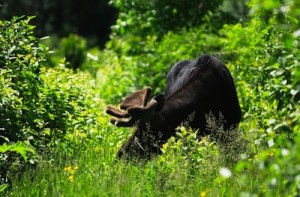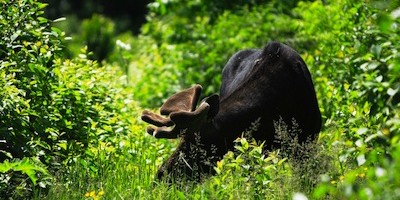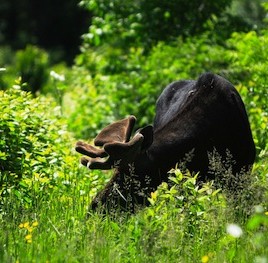
A new study shows that saliva produced by moose and reindeer reduces the growth of a fungus that lives inside grasses and makes them more toxic to herbivores. (Photo credit: Ray Dumas, via flickr)
Moose and reindeer saliva may inhibit the growth of a toxic fungus that lives inside the grass known as red fescue. The researchers collected saliva from moose and reindeer from Canadian zoos, then applied it to grass that contained the toxic fungus.
Their results showed that fungus grew more slowly and in some cases produced fewer toxins when treated with saliva. While many plants – through their fungal partners – are known to produce toxins to deter herbivores, this the the first evidence that herbivores can actually fight back.
Original research paper published in the journal Biology Letters on July 22, 2014.
Names and affiliations of selected authors



